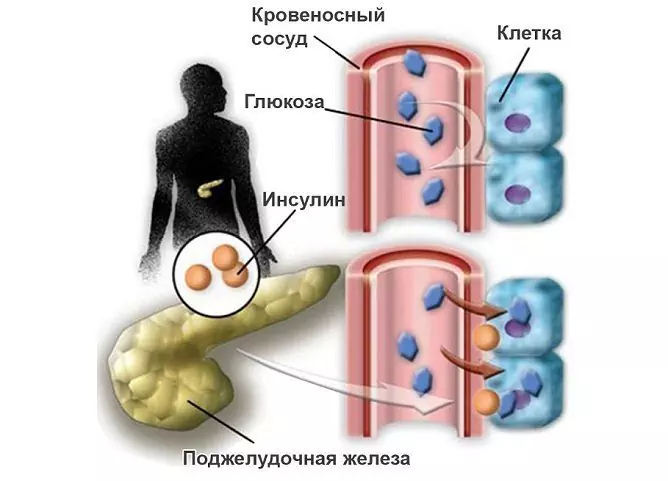- Author Rachel Wainwright wainwright@abchealthonline.com.
- Public 2023-12-15 07:39.
- Last modified 2025-11-02 20:14.
HCG during pregnancy

HCG (human chorionic gonadotropin) is a hormone synthesized by the cells of the membranes of the embryo. That is, the presence of hCG in the female body indicates the presence of chorionic tissue, and, therefore, pregnancy. Moreover, the level of this hormone may indicate not only physiological, but also pathological processes occurring in the body of a pregnant woman. Therefore, the analysis of hCG during pregnancy is very important.
HCG levels during pregnancy
As early as 6-8 days after conception, when the embryo attaches to the wall of the uterus, hCG begins to be produced by the chorionic tissue. In the first trimester, this hormone supports the corpus luteum and stimulates the production of estrogens and progesterone, which are necessary for the normal course of pregnancy. This situation persists until the independent formation of the hormonal background by the fetus-placenta system.
The level of hCG in early pregnancy doubles every 2-3 days, its increase by 60% over the same period of 48-72 hours is also considered normal. Further, the increase in the level of the hormone falls: at 1200 units, the amount of hCG doubles every 3-4 days, and after 6000 units - every 96 hours or 4 days.
Approximately 6-7 weeks after conception, which corresponds to 8-9 obstetric weeks, the growth of hCG stops and begins to slowly decline. If the pregnancy is multiple, the chorionic gonadotropin content increases in proportion to the number of embryos.
The norms of hCG during pregnancy may vary slightly in different laboratories, but in general they look like this:
- 0-5 - non-pregnant women and men;
- 25-155 - 3-4 weeks of pregnancy;
- 100-4870 - 4-5 weeks of pregnancy;
- 1110-31500 - 5-6 weeks of pregnancy;
- 2560-82200 - 6-7 weeks of pregnancy;
- 23100-150000 - 7-8 weeks of pregnancy;
- 27300-230000 - 8-9 weeks of pregnancy;
- 20,900-29,000 - 9-13 weeks of pregnancy;
- 6100-100000 - 13-18 weeks of pregnancy;
- 4700-80000 - 18-23 weeks of pregnancy;
- 2700-78000 - 21-39 weeks of pregnancy.
If the hCG level ranges from 5 to 25 units, then a second study is required, since with such a hormone value it is impossible to confirm or deny pregnancy. The second analysis must be passed 2-3 days after the first.
Increased hCG during pregnancy
If hCG norms are violated during pregnancy, this is a cause for concern. To determine the exact level of the hormone, a blood test for hCG is taken, on the basis of which a diagnosis is made.
Increased hCG during pregnancy occurs in the following cases:
- Incorrectly set deadline;
- Gestosis (late toxicosis of pregnant women);
- Fetal pathologies and malformations, for example, Down syndrome;
- Diabetes mellitus in the expectant mother;
- Reception of synthetic gestagens and hCG preparations with the threat of interruption;
- Overburdening;
- Plurality.
With any suspicion of a serious diagnosis, the study of chorionic gonadotropin is carried out several times, that is, in dynamics. This is due to the direction of therapeutic measures, whether it is the restoration of the physiological state of the fetus or mother, or the planned termination of pregnancy for medical reasons.
Sometimes an increased hCG during pregnancy is due to the unreliability of the study, when the rules for taking blood are violated or a mistake was made by a doctor, laboratory assistant. Also, the reason may be an incorrect assessment of the analysis results.
Low hCG levels during pregnancy
Not only high, but also low levels of hCG during pregnancy are an important sign of adverse changes in the body of a pregnant woman and a developing embryo. So, a reduced level of the hormone indicates the following possible pathologies:
- Fetal death;
- Ectopic pregnancy;
- Developmental delay;
- Chronic placental insufficiency;
- The threat of termination of pregnancy;
- Overburdening.
Low hCG levels during pregnancy are also detected if the gestational age or gestational age of the fetus is incorrectly set.
HCG for ectopic pregnancy
Ectopic pregnancy is a dangerous condition, therefore it must be determined as early as possible. The analysis of hCG allows one to suspect this pathology at the earliest possible date. With an ectopic pregnancy, the hormone level rises more slowly, which is one of the main criteria for its presence. The rule "increase 2 times in two days" does not work in this case. For the reliability of the diagnosis, the test is carried out at least 2 times.

Sometimes, with an ectopic pregnancy, the amount of chorionic gonadotropin may even be negative.
HCG for a frozen pregnancy
A drop in the level of hCG also happens during a frozen pregnancy, when the fetus, for one reason or another, does not develop and dies in the womb. In this case, the hormone is no longer produced, and the analysis results show a drop in the level of gonadotropin.
In any case, you should not panic, since it is possible that hCG indicators during pregnancy go beyond the normal range due to an incorrectly set period. To determine a regressive pregnancy, it is necessary to conduct an ultrasound examination, after which it is confirmed or denied.
With any test results for hCG, one cannot draw conclusions on his own - only a doctor who makes a final diagnosis or prescribes a re-examination is able to correctly interpret the obtained indicators.
Found a mistake in the text? Select it and press Ctrl + Enter.






